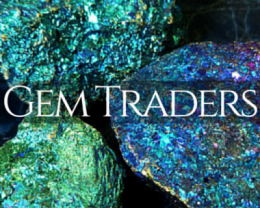COLLECTORS GIBEON NAMBIAN METEORITE 181 CARATS
- SKU
- RT416
- Dimensioni (mm)
- 66.000 x 29.000 x 2.500mm
- Peso (cts)
- 181.000
- Colori
-
NOTE GREAT SHAPE FOR COLLECTORS DISPLAY
The Gibeon Meteorite was first reported by Capt. J.E. Alexander in 1838. He heard of masses of native iron up to two feet square on the east side of the Great Fish River. While he did not see the masses himself, he was able to obtain samples for analysis. Undoubtedly, the natives in the area were previously aware of these occurrences, since they were found on the surface AND THEY MADE TOOLS FROM THIS METEORITE.
In the years following, Europeans established large cattle ranches in the area and recovered many more large meteorites. A 232 kg mass was recovered in 1857.
Many masses between 100 and 500 kg were recovered in the years shortly after 1900. As late as the publication of the Handbook of Iron Meteorites in 1975, scientists were reporting the that Gibeon consisted primarily of large masses and lacked the smaller pieces like those found at Canyon Diablo, Odessa, and Sikhote-Alin.
Buchwald speculated that greater knowledge might reveal smaller specimens or that smaller fragments may have been collected by natives and made into tools. It seems that lack of knowedge may have been the answer. In the past year or two increasing numbers of small Gibeon Meteorites have been exported.
It may be that with modern metal detection equipment meteorite hunters will locate a substantial number of smaller specimens.
Composition and Mineralogy
The chemical composition of the Gibeon is:
90% iron 8% nickel 0.4% cobalt 0.04% phosphorus.
Smaller piece is polished.
- SKU
- RT416
- Dimensioni (mm)
- 66.000 x 29.000 x 2.500 mm
- Peso (cts)
- 181.000
- Colori
-
NOTE GREAT SHAPE FOR COLLECTORS DISPLAY
The Gibeon Meteorite was first reported by Capt. J.E. Alexander in 1838. He heard of masses of native iron up to two feet square on the east side of the Great Fish River. While he did not see the masses himself, he was able to obtain samples for analysis. Undoubtedly, the natives in the area were previously aware of these occurrences, since they were found on the surface AND THEY MADE TOOLS FROM THIS METEORITE.
In the years following, Europeans established large cattle ranches in the area and recovered many more large meteorites. A 232 kg mass was recovered in 1857.
Many masses between 100 and 500 kg were recovered in the years shortly after 1900. As late as the publication of the Handbook of Iron Meteorites in 1975, scientists were reporting the that Gibeon consisted primarily of large masses and lacked the smaller pieces like those found at Canyon Diablo, Odessa, and Sikhote-Alin.
Buchwald speculated that greater knowledge might reveal smaller specimens or that smaller fragments may have been collected by natives and made into tools. It seems that lack of knowedge may have been the answer. In the past year or two increasing numbers of small Gibeon Meteorites have been exported.
It may be that with modern metal detection equipment meteorite hunters will locate a substantial number of smaller specimens.
Composition and Mineralogy
The chemical composition of the Gibeon is:
90% iron 8% nickel 0.4% cobalt 0.04% phosphorus.
Smaller piece is polished.
| Fornitore di spedizioni | Spedizione a Australia | Spedizione nel resto del mondo |
|---|---|---|
| Express Shipping | $12.00 / 2 giorni | $39.00 / 10 giorni |
|
Australia
Express Shipping è scontato a $12.00 sugli ordini con 2 o più articoli
Resto del mondo
Express Shipping è scontato a $39.00 sugli ordini con 2 o più articoli
|
||
| Registered Shipping | $9.00 / 7 giorni | $16.00 / 21 giorni |
|
Australia
Registered Shipping è scontato a $9.00 sugli ordini con 2 o più articoli
Resto del mondo
Registered Shipping è scontato a $16.00 sugli ordini con 2 o più articoli
|
||

For over 30 years, we've been your go-to destination for exquisite gems, jewelry, and treasures.
-
 Positivo
PositivoThese are subtle, and genuinely pretty, quartz stones!
-
 Positivo
PositivoLove this ring! Thanks!
-
 Positivo
PositivoThese are such a pretty colour! Cheers.
-
 Positivo
PositivoGreat mask! Thank you.
-
 Positivo
PositivoPaid and shipped - no feedback left after 100 days














